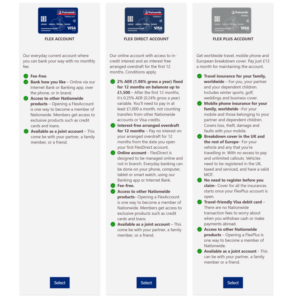Consumer Duty Part 3: Product Testing
Posted: 13/04/2023


A new Consumer Duty: The products and services outcome
The FCA’s new Consumer Duty Rules will come into effect from July 2023. There are a number of outcomes the FCA expects to see as a result of the new rules: one of these is the products and services outcome. For this outcome to be fulfilled, the FCA wants to see that all financial products and services for consumers are fit for purpose, designed to meet the specific characteristics, needs, and objectives of a target group of consumers, and distributed to those consumers appropriately to ensure good outcomes for consumers.
What might make a product or service unfit for purpose?
The design of different financial products and services may be inadvertently triggering behavioural biases in consumers, leading them to choose products that are not the right fit for their needs, or leading them to make financial decisions that are not in-line with their long-term goals.
One of the behavioural biases that could be unintentionally affecting consumers is present bias. Present bias is the tendency to overvalue rewards that are received immediately, and under-value rewards that may come in the future 1 . Credit cards, and other products which offer low interest rates for an initial period, and then charge high rates after that period capitalise on present bias. Consumers place too much value on the low rates they are getting with the credit card initially, and do not fully comprehend the enormity of the rates they will be paying for the same credit card in the future 2 . This may result in consumers choosing a credit card with rates that they cannot afford to pay in the long-term.
Present bias, and other behavioural biases like it, need to be accounted for in the design of financial products and services in order to comply with the FCA’s new Consumer Duty.
How can Dectech help?
BehaviourLab is Dectech’s Product Testing tool, where customers are placed into realistic and immersive product choice or usage journeys. By varying the design and features of the products and observing the impact on customer behaviour, we can identify if and how those products may not be fit for purpose. We have used BehaviourLab to test a wide range of financial products to ensure that those products met the needs of their intended audience. Examples of products we have tested include:
- Paid bank accounts for a major high street bank.
- We tested different bundles of benefits to see which combinations would best meet consumers’ needs.
- Current accounts for an online challenger bank.
- We identified which sign-up incentives for current accounts on a price comparison website best align with consumer preferences.
- Motor insurance for a major UK insurer looking to introduce a challenger brand.
- We tested different versions of the product at different prices and with different benefits to find the combination which best suited consumers’ needs.

Fig 1. Testing different paid bank accounts for a major high-street bank using Dectech’s BehaviourLab Product Testing Tool.
If you’d like to talk through how we can help you to comply with the products and services outcome of the new Consumer Duty, please email us at enquiries@dectech.co.uk.
1. Benhabib, J., Bisin, A, & Schotter, A. (2010). “Present-bias, quasi-hyperbolic discounting, and fixed costs.” Games and Economic Behaviour, 69(2): 205-223.
2. Meier, S. & Sprenger, C. (2010). ”Present-Biased Preferences and Credit Card Borrowing.” American Economic Journal: Applied Economics, 2 (1): 193-210.